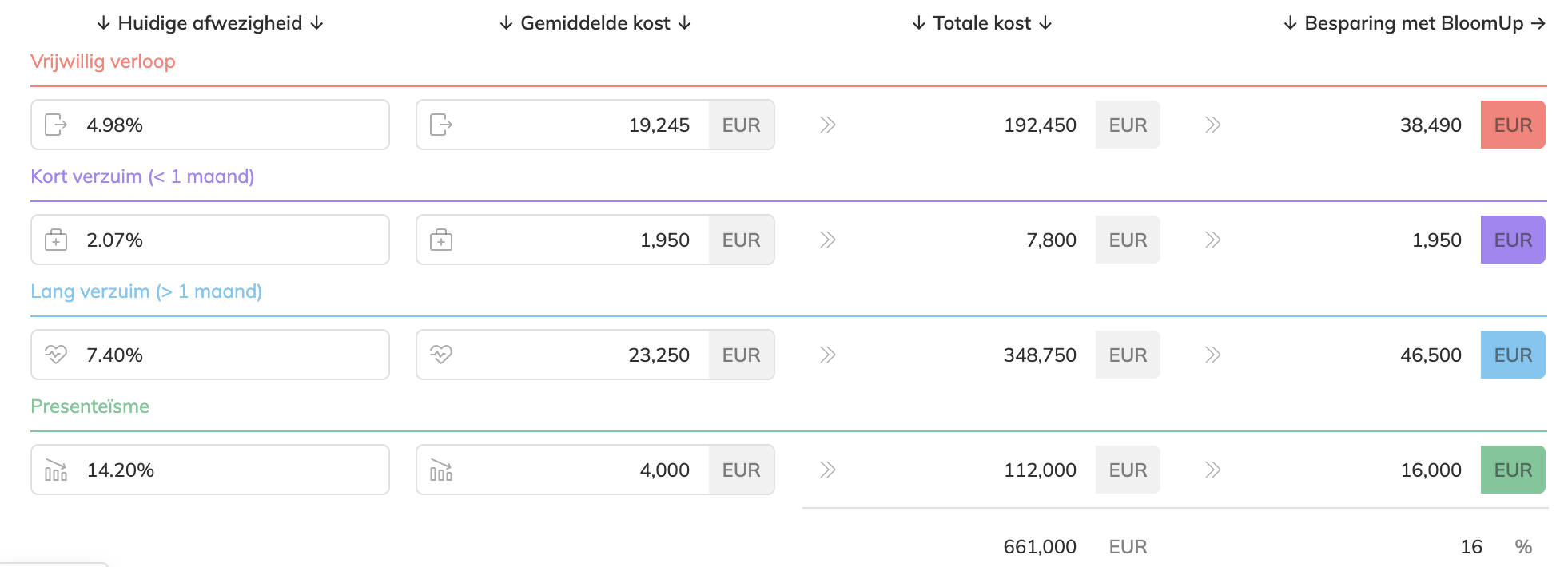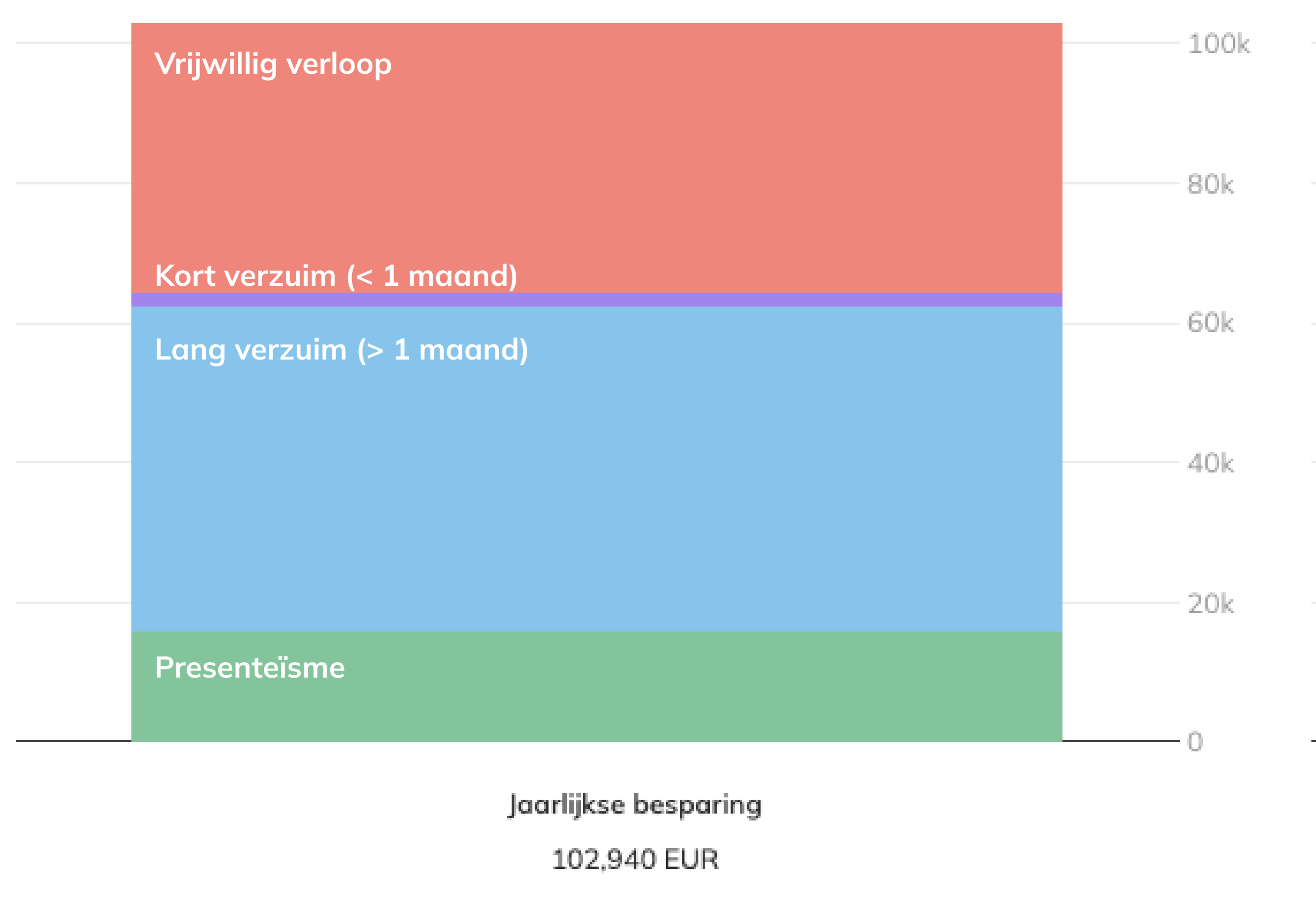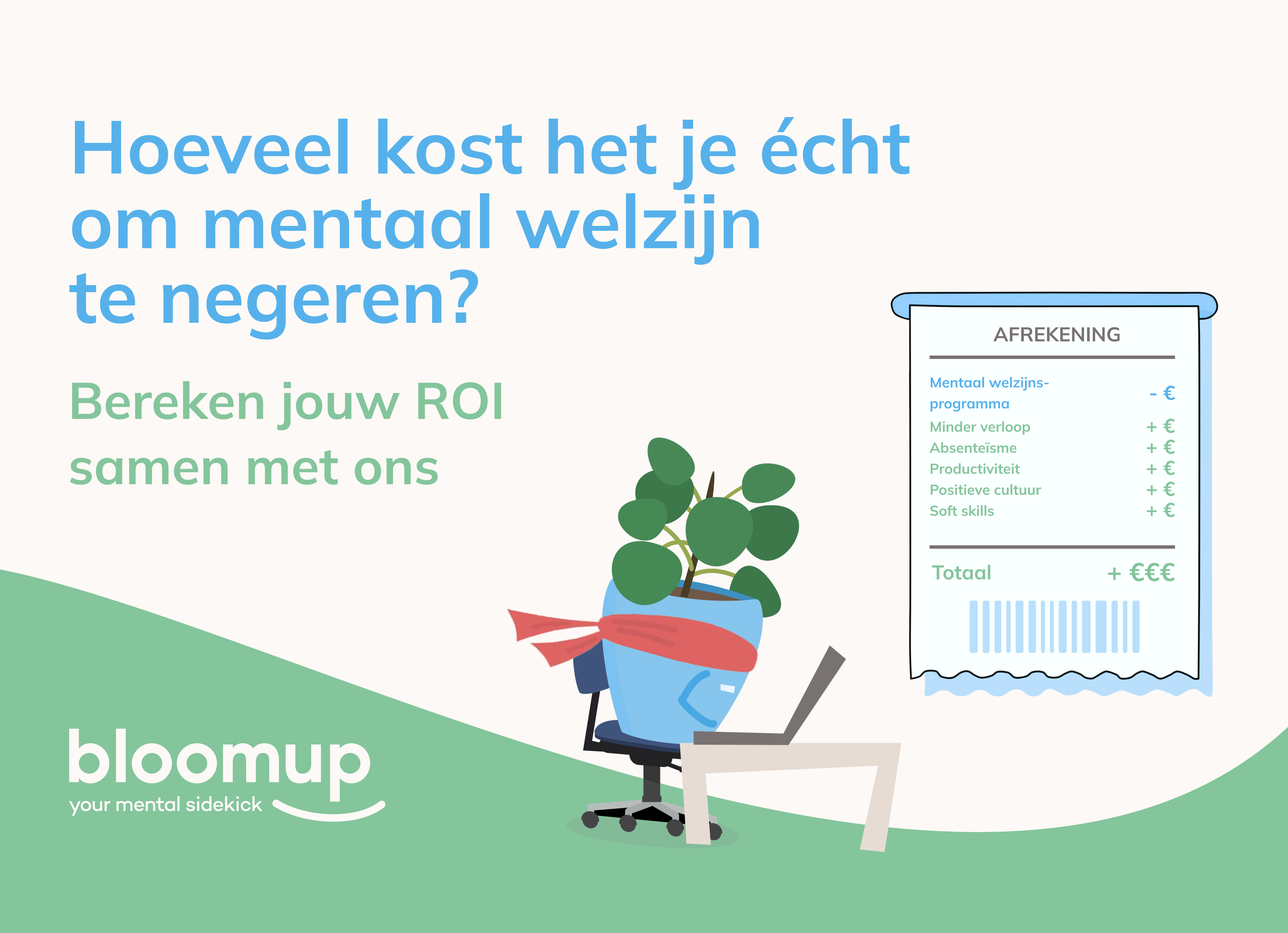A social problem impacting your organization
The scope of the problem is significant. According to the RIZIV, half a million employees and self-employed individuals have already been at home for more than a year. In the past five years, the number of long-term sick leaves due to burnout or depression has increased by 43%. This underscores the urgency of investing in mental well-being.
The importance of this extends beyond social responsibility; it's also crucial for the financial health of your company. Mental health problems incur significant costs. Long-term absenteeism is a key indicator of a company's financial performance. Research by GraydonCreditsafe and Securex shows that companies without long-term sick leave are 1.4 times more profitable. Additionally, high employee turnover is costly. Companies with low employee turnover are 1.3 times more productive than companies where two out of three employment contracts are terminated in a year. The connection is clear: healthy and satisfied employees directly contribute to a profitable company.
Financial Impact and potential savings for your company
So, we see several costs that we could address to save money. We've listed them below:
1 - Reduced turnover
A culture of good mental well-being lowers employee turnover, reducing recruitment and training costs.
2 - Costs of absenteeism
Mental health problems lead to costly absenteeism. With a well-being platform, you can reduce absenteeism through early support.
3 - Productivity gain / Presenteeism
Improved mental health increases productivity. Giving employees the tools to better manage stress, or strengthening leadership and collaboration, can deliver directly measurable results.
4 - Non-measurable benefits
Even broader than the above, good mental health promotes a positive company culture and increases the agility of your organization, with all sorts of additional benefits (also in personal life).
Measuring is knowing
To make the potential savings concrete, you can use an ROI calculator. With an ROI calculator, you can accurately map the financial impact of your well-being programs. This tool provides insight into the possible savings and benefits of your investments in mental health, allowing you to make better-informed decisions about optimizing your company budget.
Example of the calculator we have created:

Studies show that companies that invest in mental health programs can achieve an ROI of up to 5:1. This means that for every euro invested in mental health care, companies earn back 5 euros through savings and improvements in productivity. By investing in a well-being platform, you can benefit from this positive ROI.

Based on our expertise from customer experiences and studies, we have built our own calculator to make the overview of costs a lot easier. With our ROI calculator, you can easily calculate how much your company can save annually by investing in the well-being of your employees. You do this based on the following steps:
- Choose your sector
- Enter the number of employees
- Fill in the various cost items
- Get an insight into your (hidden) costs, as well as an estimate of the possible savings when investing in a well-being platform.
Go to the ROI calculator here.
For more detailed insights into your employees' well-being, you can use surveys and HR analytics. Regular surveys provide valuable information about your team's satisfaction and mental well-being. By using tools like Wenite dashboards, you can collect important data on absenteeism, productivity, and other crucial indicators. This data helps you identify trends and take timely action to improve your employees' well-being.
A cost analysis for your company?
A platform like BloomUp can help your company realize financial and operational benefits.
Do you have questions or want to know more about how BloomUp can specifically contribute to your organization? Schedule a free, customized cost analysis for your company here.



.png)
.svg)